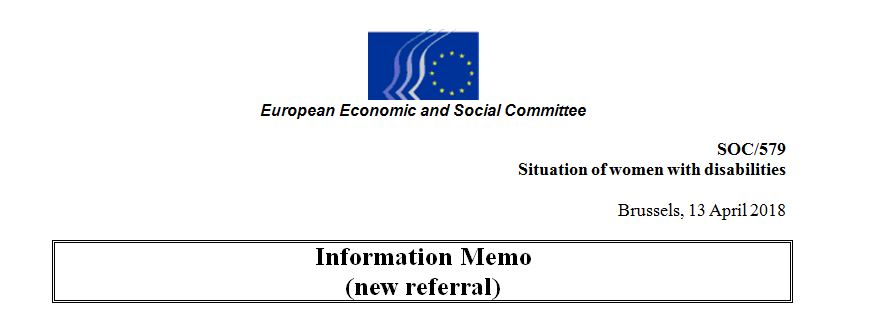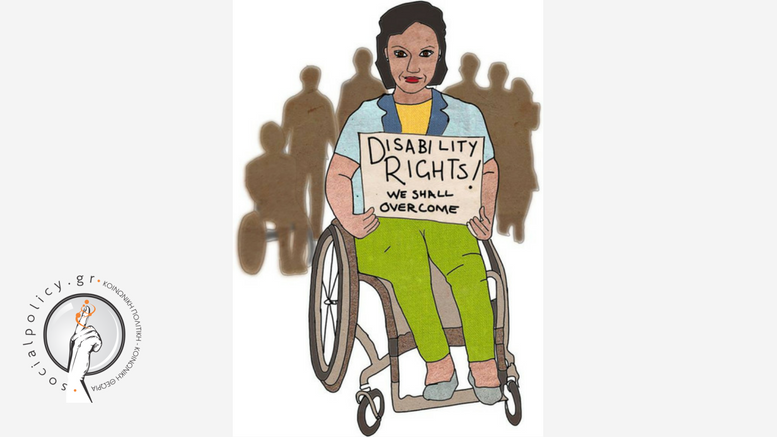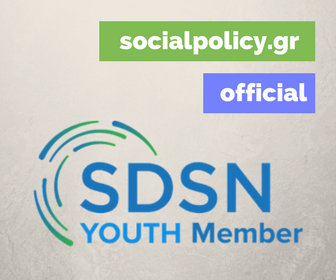
Subject: The situation of women with disabilities
Ref.: Exploratory opinion requested by the European Parliament
| —————————————— |
1. Procedure
| European Parliament referral
|
03/04/2018 | |
| Legal basis
|
Article 29 of the Treaty on the Functioning of the European Union | |
| Committee Bureau decision
|
13/03/2018
|
|
| Section responsible
|
Employment, Social Affairs and Citizenship | |
| Section president
|
Pavel TRANTINA (CZ/III) | |
| Organisation of section work
|
27/03/2018
|
|
| Study Group on | President | Marie ZVOLSKÁ (CZ/I) |
| Employment guidelines | ||
| Rapporteur | Gunta ANČA (LV/III) | |
| Members | Ask ABILDGAARD (DK/III) | |
| Pietro Vittorio BARBIERI (IT/III) | ||
| Dorota GARDIAS (PL/II) | ||
| Bo JANSSON (SE/II) | ||
| Linas LASIAUSKAS (LT/I) | ||
| Christophe LEFÈVRE (FR/II) | ||
| Irena PETRAITIENÈ (LT/II) | ||
| Antonello PEZZINI (IT/I) | ||
| Madi SHARMA (UK/I) | ||
| Indrė VAREIKYTĖ (LT/III) | ||
To the members of the
European Economic and Social Committee
Expert/s
An-Sofie Leenknecht (for the rapporteur)
2. Gist of the European Parliament document
There is strong evidence to show that women and girls with disabilities face barriers in most areas of life. These barriers create situations of multiple and intersecting forms of discrimination against women and girls with disabilities, in particular with regard to: equal access to education, economic opportunities, social interaction and justice; equal recognition before the law; and the ability to participate in politics and to exercise control over their own lives across a range of contexts, for example with regard to health care, including sexual and reproductive health services, and to where and with whom they wish to live.
The UN Committee on the Rights of Persons with Disabilities published in 2016 the General comment No. 3 on women and girls with disabilities.
The EESC opinion would look into the current situation of women with disabilities, in relation to some of the most relevant articles of the United Nations Convention on the Rights of Persons with Disabilities: awareness-raising, accessibility, equal recognition before the law, access to justice, independent living, education, employment, social protection, health and rehabilitation.
The opinion will serve as input to a Non-Legislative Own-Initiative Report of the European Parliament on the same theme.

Discover more from socialpolicy.gr
Subscribe to get the latest posts sent to your email.




























































